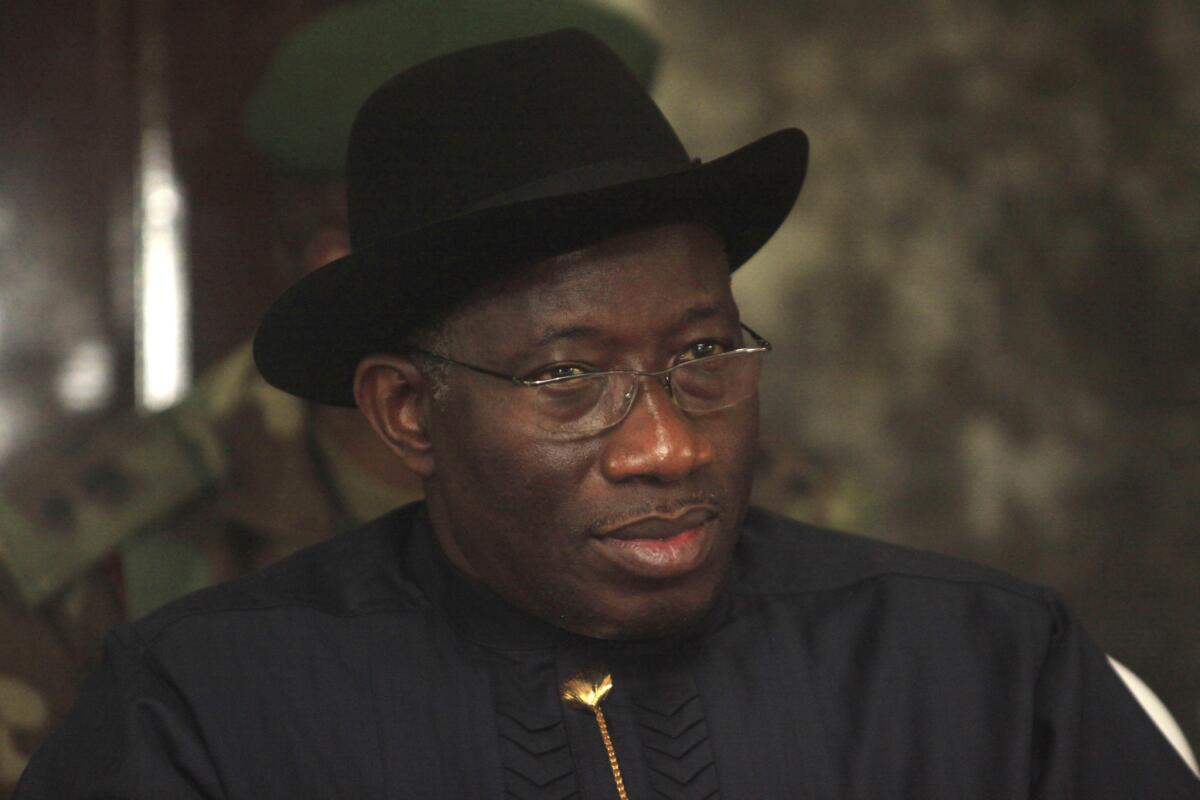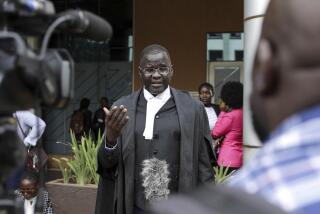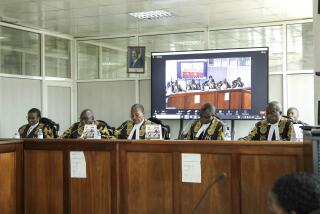Nigerian anti-gay law prompts arrests, international condemnation

- Share via
A draconian anti-gay law passed by the Nigerian parliament last year and quietly signed by President Goodluck Jonathan this month has led to the arrest of scores of homosexuals and set off an international wave of condemnation.
The Same Sex Marriage Prohibition Act criminalizes gay marriage and civil unions, imposing punishment of up to 14 years in prison for gay couples who openly display their relationship in a country where, according to polls, 98% of society shuns homosexuality as deviant behavior.
“This is a law that is in line with the people’s cultural and religious inclination,” Jonathan’s spokesman, Reuben Abati, was quoted by the Associated Press as saying. “It is a law that is a reflection of the beliefs and orientation of Nigerian people.... Nigerians are pleased with it.”
A report on “The Global Divide on Homosexuality” by the Pew Research Center last year found Nigerians to be the most intolerant of gays among 39 countries examined, with 98% of survey respondents saying homosexuality should not be accepted by society. Anti-gay attitudes were also expressed by more than 90% of those polled in Senegal, Ghana, Uganda, Kenya, Jordan, Egypt, Tunisia and the Palestinian territories, according to the Pew Center research.
Sodomy was already illegal in Nigeria when the government last year proposed the stricter measures against legally recognized gay relationships, public displays of affection between people of the same sex and advocacy for gay rights, including prohibitions against organizations dedicated to the fight against the spread of HIV/AIDS.
Since Nigerian lawmakers enacted the law Dec. 17, dozens of gay men have been arrested in the conservative northern reaches of the country, where homosexuality is punishable by death in some provinces governed by sharia, or Islamic law, the Daily Telegraph reported.
Dorothy Aken’Ova of Nigeria’s International Center for Reproductive Health and Sexual Rights told foreign media in Nigeria that police in Bauchi state arrested several gays this month and tortured them into giving up the names of others. Authorities have drawn up a list of 168 men, 38 of whom are already in custody, she said.
The new law has been condemned as a human rights violation by U.S. Secretary of State John F. Kerry, as well as the leaders of Canada and Britain, the latter the former colonial power in Nigeria and author of the initial anti-gay laws.
“The United States is deeply concerned by Nigeria’s enactment of the Same Sex Marriage Prohibition Act,” Kerry said in a statement Monday. “Beyond even prohibiting same sex marriage, this law dangerously restricts freedom of assembly, association, and expression for all Nigerians.”
The law is also “inconsistent with Nigeria’s international legal obligations and undermines the democratic reforms and human rights protections enshrined in its 1999 Constitution,” Kerry said.
The Geneva-based International Service for Human Rights denounced the law as likely to have “wide-ranging and damaging impacts on the rights” of homosexuals and said the international community demanded its repeal.
“International human rights law prohibits discrimination on the grounds of sexual orientation and gender identity,” said Heather Collister, the organization’s gay rights program manager. “It also protects the rights to freedom of association and expression. This law is manifestly incompatible with international human rights standards and must be repealed.”
Twitter: @cjwilliamslat
More to Read
Sign up for Essential California
The most important California stories and recommendations in your inbox every morning.
You may occasionally receive promotional content from the Los Angeles Times.











